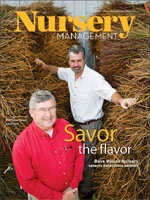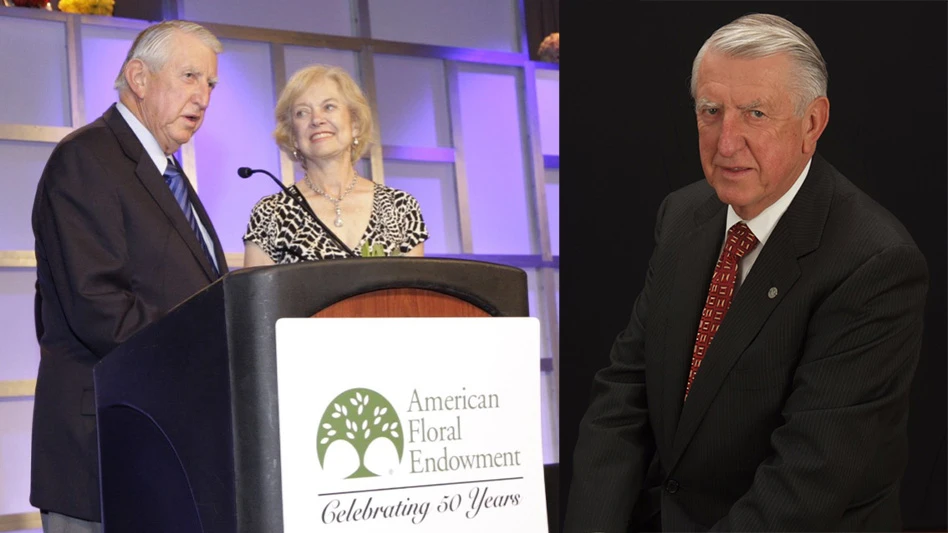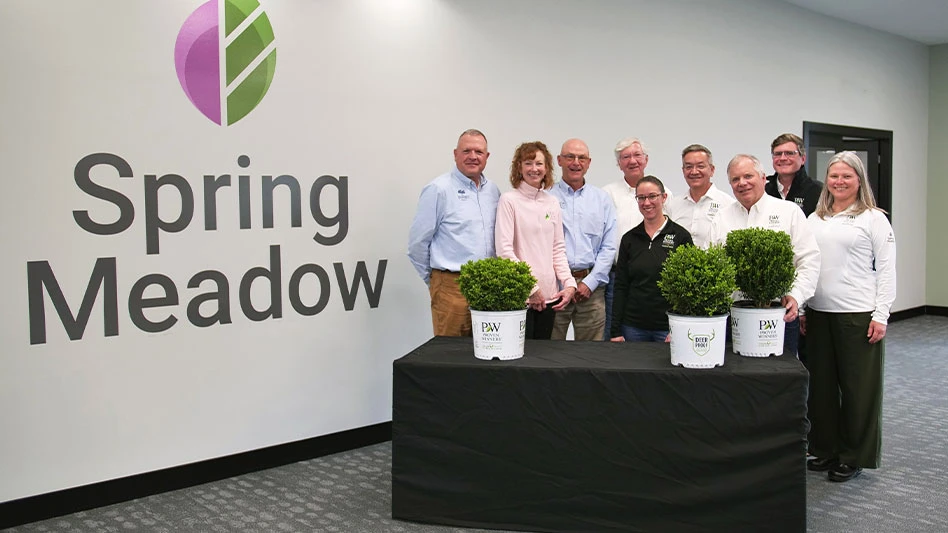The popularity of edibles continues to climb – a bright spot in a still dim economy. And California-based Dave Wilson Nursery dedicates much of its resources to innovative fruit tree selections. The company is working on new rootstocks that delay Prunus bloom time, as well as more salt-tolerant Prunus rootstock to market in the desert Southwest, Tarry said. And watch for the release of more cold-hardy fruit trees to market. “We want to bring fruit trees to markets where they’ve historically never been able to grow,” he said. Zaiger genetics Dave Wilson Nursery introduced the first tree fruit varieties developed by Floyd Zaiger in 1966. The nursery is the primary propagator and exclusive licensor of Zaiger varieties. Floyd Zaiger is a world-renown stone fruit hybridizer who makes more than 50,000 crosses each year, Tarry said. “Floyd does interspecies cross-over genetics that allows him to cross peaches, plums, apricots, nectarines and cherries outside of their species,” Tarry said.
“This enables the end consumer, at a glance, the ability to pick varieties that don’t harvest at the same time,” Tarry said. The maturity chart features the grower’s top selling and newest varieties in order of ripening dates. “This is a great tool for the home gardener if they want to plan their backyard orchard accordingly and stagger fruit ripening,” he said. The nursery also manages a Facebook page and a YouTube channel. To keep the tasting report up to date, the nursery coordinates formal tastings two or three times a year. The taste-testers are typically nursery professionals, members of the California Rare Fruit Growers, commercial growers and farmer’s market growers. The panel scores varieties based on qualities such as appearance, flavor, acidity and ripeness. Some of the top varieties on the taste report include Arctic Glo white nectarine, Van cherry, Eva’s Pride yellow peach and Dapple Dandy Pluot. For more: Dave Wilson Nursery, 209.874.1821; www.davewilson.com. |

Explore the January 2011 Issue
Check out more from this issue and find your next story to read.
Latest from Nursery Management
- Leading Women of Horticulture: Angela Labrum, Bailey Nurseries
- The HC Companies, Classic Home & Garden merge as Growscape
- Terra Nova releases new echinacea variety, 'Fringe Festival'
- Eason Horticultural Resources will now officially be known as EHR
- BioWorks receives EPA approval for new biological insecticide for thrips, aphids, whiteflies
- Ellen Mackenbach-Lakeman appointed new CEO of Dümmen Orange
- The Growth Industry Episode 3: Across the Pond with Neville Stein
- Southern Garden Tour sets 2025 dates for trial garden open houses






